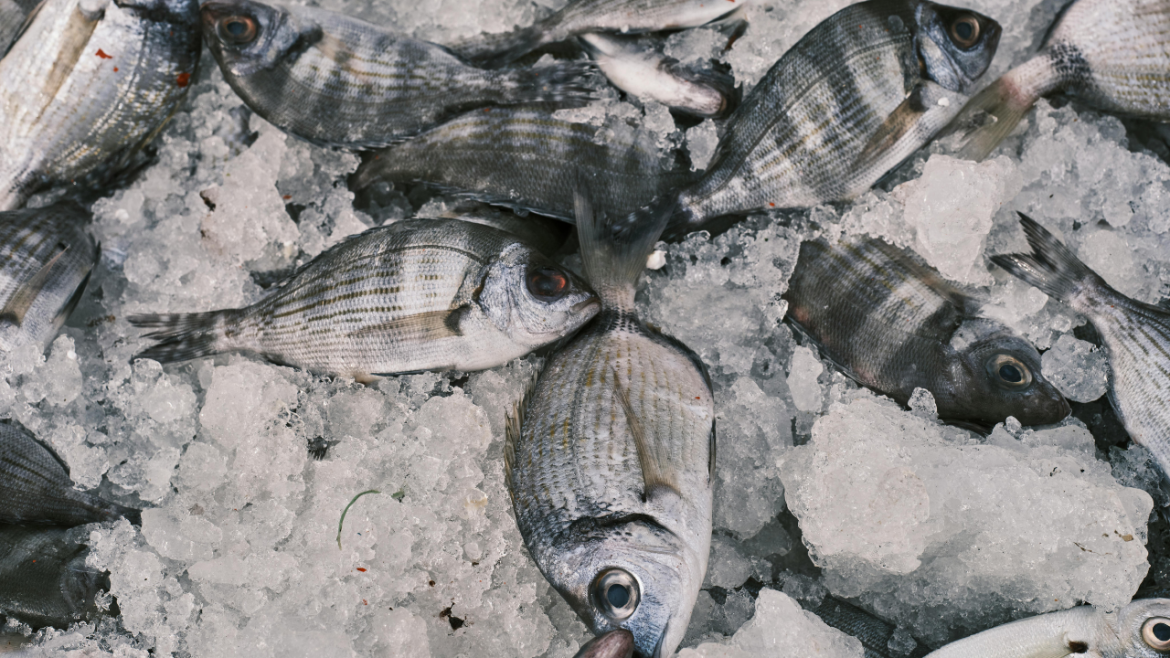Never waste a crisis they say. When Ocean Basket placed whole seabream on their menu two summers ago, their entire stock was sold out within six weeks. The success of this strategy to serve a broader range of seafood and introduce South Africans to eating whole fish – a more sustainable and less wasteful way of consumption – took them entirely by surprise.
South African National Marine Week is celebrated every year during the second week of October. Its purpose is to create awareness on the marine and coastal environment, the promotion of sustainable use and conservation of these resources, for the benefit of all both present and future generations.
Ocean Basket has put in place many efforts to protect precious resources and give back to the community.
Eager to purchase more stock but unable to source any in time for the festive season, Ocean Basket Supply Chain Executive Marco Coelho decided to implement an idea that had been brewing for a while: look local and look to small-scale fishing communities who, he had been ill-advised, were not producing large enough catches to consider.
And so, Coelho stumbled upon a growing, disruptive organisation called ABALOBI, which opened up a new world of possibilities.
What is ABALOBI?
ABALOBI – meaning Fisher in Xhosa – is a South African-based organisation that envisions thriving, equitable, climate change-resilient and sustainable small-scale fishing communities. They achieve this through financial inclusion, collective social entrepreneurship, and a data-driven approach to fisheries rebuilding, elevating traditional fishers to participate actively in responsible fishing practices.
Leaving the Western Cape shores in small boats in the early hours and returning with their catch, traditional fishers are left to accept whatever price is offered at the harbour by buyers who often collude to keep fisher returns low. This means that many fishers are not even able to purchase fuel for the next day’s fishing or keep a portion of their catch to feed their own families.
But in a growing number of coastal communities, ABALOBI is partnering with fishers to co-design and implement ‘Technology For Good’ – enabling them to become data owners, build organisational capacity, engage in transparent and traceable supply chains that afford fair market prices while recognising the critical role of women and addressing food security needs. Ultimately, fishers are poised to reposition themselves in the value chain, rebuild their fisheries and help develop more ethical food systems as they journey towards social and ecological sustainability.
Securing the source
These are the same Cape waters where Cape Bream, a similar species to seabream, is caught and Ocean Basket quickly committed to a fair price for this fish. A price that remains consistent and is not dependent on demand has had a profound economic impact on several fishing communities. Since early 2023, Ocean Basket has purchased almost 28 tons of seabream caught by these communities using traditional, low-impact handline fishing.
The direct payments to fishing community members amounted to almost R1.5-million, ensuring that fishers, fish cleaners and community-based quality control teams received fair and consistent compensation for their hard work.
Coelho says he was struck by the fishers’ deep connection to the ocean and their passion for sustainable fishing during his visits: “Our decision to pay a higher, fair price for their catch has enabled these fishers to transition from uncertain, ad hoc sales to a secure, predictable income. At Ocean Basket, we believe in the power of collective effort and by partnering with these dedicated individuals, we’ve been able to foster economic empowerment and enhance food security, making a real, lasting impact on their lives.”
ABALOBI Director of Growth, Chris Kastern, says: “Our relationship with Ocean Basket has been instrumental in demonstrating the power of a fair and equitable seafood value chain; it has helped us show that responsible fishing can be both economically viable and ecologically sound. This partnership between Ocean Basket and traditional fishers demonstrates what can be achieved when businesses prioritise people and the planet alongside profit. Together we are forging a brighter, more resilient future for traditional fishers.”
Good for people and the planet
The collaboration has also made Cape Bream, a green-listed species, economically viable for fishers to focus on. The Southern African Sustainable Seafood Initiative (SASSI) colour-codes fish species from red (reason for concern) to orange (think twice before eating) and finally green (the most sustainable and well-managed choices available).
Ocean Basket’s contributions to ABALOBI’s three-dimensional impact, which includes social, ecological and economic benefits, have far-reaching effects on the broader community.
Over the past few years, the support has extended to 14 skippers’ households, 103 crew households, and 20 households of fish cleaners and community-based quality teams.
Preserving culture and tradition
Ocean Basket and ABALOBI’s efforts also play a vital role in preserving the cultural and traditional practices of fishing communities. By making traditional fishing economically viable, these initiatives ensure that fishers do not have to abandon their cultural heritage due to economic pressures.
Looking ahead
Currently, 50% of Ocean Basket’s bream comes from ABALOBI, with plans to increase this to 80%. While Cape Bream is the primary focus for now, there are plans to expand to other species such as Yellowtail and discussions are underway for Carpenter (Silvers). This expansion signifies a broader commitment to supporting sustainable fishing practices.
Ocean Basket and ABALOBI have set an example of how businesses can contribute to social, economic, and ecological sustainability.
In a world where sustainable practices are becoming increasingly crucial, Ocean Basket has taken a giant step towards improving the livelihoods and food security of small-scale fishing communities in South Africa.
ALSO SEE: What to look out for when shopping for fish

